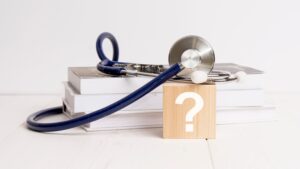
Meningitis can cause an acquired brain injury (ABI). Most cases of meningitis are caused by viruses or bacteria. Meningitis affects the meninges, the protective membranes of the nervous system. When infected, these membranes swell and create a variety of temporary and permanent problems for the brain and spinal cord.
A meningitis acquired brain injury can range from mild to severe. Many with relatively mild or moderate brain injuries can overcome their injuries or adapt to new ways of doing things despite their impairments.
Meningitis Requires Immediate Medical Care
Meningitis can cause serious brain damage and even take the life of the patient within hours of the first symptoms. This infection has the ability to affect wide areas of the brain as well as the spinal cord. With a quick diagnosis and early treatment, many people can recover fully. Others may suffer lasting brain damage despite medical care.
In the United States, there are two types of meningococcal vaccines available. One protects against bacterial infections in serogroups A, C, W, and Y. The other protects against serogroup B infections. These vaccinations are the best way to prevent a bacterial meningitis infection and any resulting brain damage.
Possible Symptoms and Impairments Related to an ABI
Meningitis can affect the brain in so many ways, including diffuse injuries that range from damaging hearing to preventing the patient from ever regaining consciousness. It is impossible to know how an illness will affect the patient’s brain in the long term until they recover enough for a full evaluation.
Some of the most symptoms of ABIs include:
- Loss of consciousness, coma, and/or disorientation and confusion
- Issues with mobility and dexterity
- Problems hearing or speaking
- Difficulty finding the right words
- Lack of concentration and focus
- Delayed response time
- Problems with short-term memory
- Severe fatigue and/or sleep disturbances
- Coordination and balance issues
- Headaches
- Double vision
- Loss of sense of smell
- Deafness or ringing in the ears
- Emotional and behavioral changes
- Epilepsy and seizures
Most people will not experience all these symptoms, and many of them go away as the patient recovers. Some tasks can be re-learned in intensive therapy sessions. Some patients make a full recovery while others must adapt to impairments caused by an ABI.
Treatment and Rehabilitation After Meningitis and ABI
Patients diagnosed with bacterial meningitis, which tends to be more severe than viral infections, are normally hospitalized and placed in isolation to prevent the spread of the infection. The quicker doctors can figure out what is wrong and administer medication to stabilize them, the better off they are.
Getting a diagnosis and the appropriate care as soon as possible can help limit the injury to the brain. Once the medications kick in and the patient is stable and no longer contagious, they can begin rehabilitation. This is especially important if there is evidence they suffered a moderate or severe brain injury. Brain injury victims work with a team of specialists who provide:
- Physical therapy
- Cognitive therapy
- Occupational therapy
- Support and guidance to the patient and their family
Most people recover the strength they lost and learn to take care of themselves again. Others have permanent impairments, but learn to overcome and adapt to them. In some cases, a person will suffer severe brain injuries after a meningitis infection. This may require in-home nursing care, placement in a long-term care facility, or finding another way to provide around-the-clock care.
Pursuing Compensation for a Meningitis-Related ABI
While meningitis and other infectious diseases generally do not support a viable personal injury lawsuit, there may be some cases where you can pursue compensation if you or a loved one suffered brain injuries after contracting meningitis. In most cases, this is possible because of a delay in diagnosing meningitis or because the doctors misdiagnosed your condition.
Doctors must follow certain protocols and run specific tests to ensure they recognize and diagnose serious illnesses properly. The sooner a doctor diagnoses you, the sooner you can begin the treatment that could reduce your risk of an ABI.
Talk to Newsome | Melton About Your Case
If you or your loved one is suffering from a meningitis-related brain injury, you may be able to pursue compensation from the doctor who failed to diagnose and treat your condition, or from the hospital who employs them.
Let the team from Newsome | Melton review your medical malpractice case for free. We have more than 20 years of experience fighting for the victims of brain injuries. Our brain injury lawyers can go after the compensation you deserve, building a strong case and proving malpractice.
Call our team today at (800) 917-5888 to get started.
